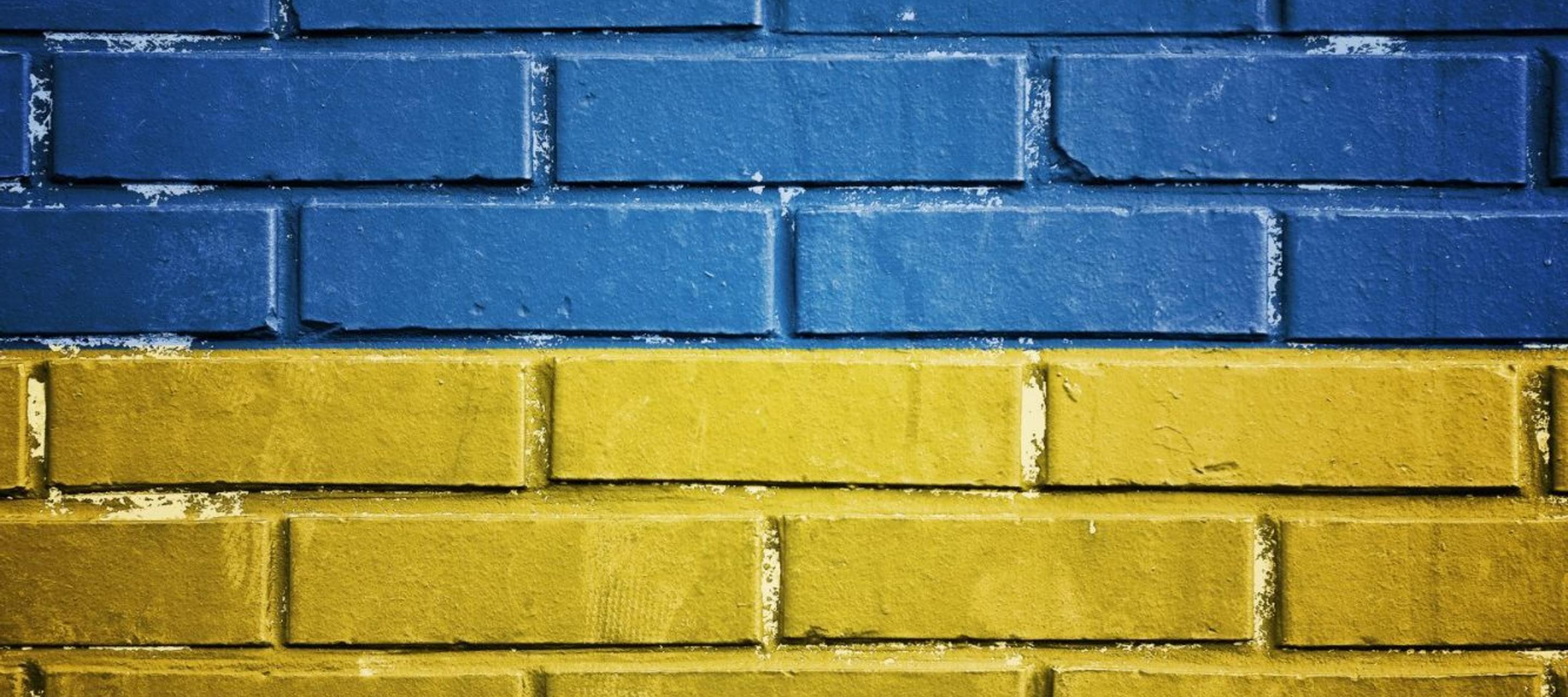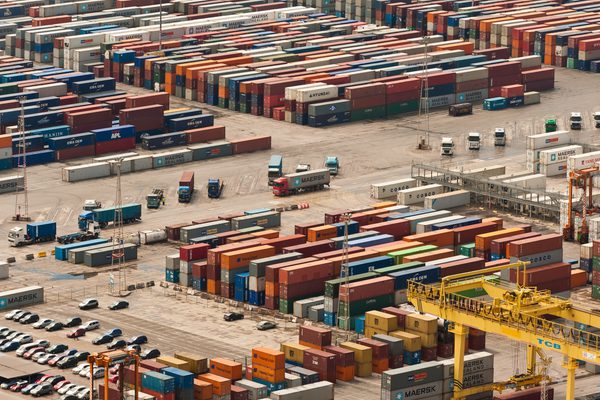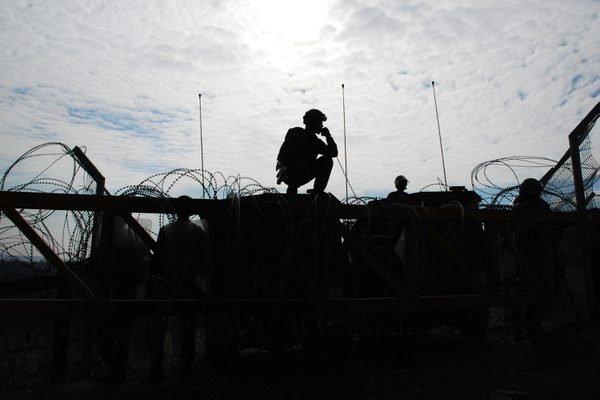Tech Companies Have Crucial Responsibilities in the Attack on Ukraine – Misinformation, Virtual Warfare and Arbitrating Truth
3 March 2022

Companies are distancing themselves from the unfolding invasion of Ukraine by the Russian Federation:
- Major western oil companies such as BP, Shell, and Exxon Mobil have cut ties with Russian oil companies and joint ventures, decisions which will have significant impacts on their bottom line. Total is under similar pressure and said it would not pump more capital into Russia.
- Western sanctions will make it nearly impossible for Russian oligarchs to move money easily across countries, or to acquire overseas assets. Two Russian billionaires with vast business interests in both countries and elsewhere have expressed anguish. In an email to his staff, the Ukraine-born Mikhail Fridman wrote: “This crisis will cost lives and damage two nations who have been brothers for hundreds of years. While a solution seems frighteningly far off, I can only join those whose fervent desire is for the bloodshed to end.” The aluminium tycoon Oleg Deripaska also called for peace.
- Roman Abramovich, the Russian owner of Chelsea, a Premier League football club in England, is selling the club and offering the proceeds to victims of the war in Ukraine. UEFA and FIFA have stopped Russian teams from participating in football competitions.
- The performances of Russian-born music conductor Valery Gergiev in western cities are being cancelled and contracts annulled.
Other companies with ties to Russian businesses close or linked to the government will find themselves under increasing pressure to dissociate themselves as well. Many will do so, because even if they aren’t western, they need access to western capital and markets for their operations, and western sanctions will bite.
Some of these decisions will be driven by the need to manage public perceptions; some, in response to demands from staff or consumers; some, because Russia may not be a market important enough to be worth the trouble. All those decisions may make practical sense, but the driving factor should be eliminating the risk of being complicit in grave human rights abuses.
Putin’s Russia today has not suddenly deteriorated; a report I wrote in 2002 at Amnesty International identified potential dangers of doing business with the Russian Federation. Regrettably, little has changed. And Russia is not unique – there are other countries which have flouted international law or norms, but which have not faced similar sanctions or scrutiny, especially if they are large and crucial for international business.
The Role of Tech Companies and Digital Media
Tech companies too have begun to act:
As an initial step, Facebook and YouTube decided to block Russian state media from running ads on their platforms and Twitter has suspended all advertising in Ukraine and Russia. A Facebook official said the company is prohibiting Russian state media from running ads or monetising on its platform.
- Russia retaliated by complaining against Facebook’s censorship and made it harder for Russians to access it. Facebook said it was being targeted because it had begun fact-checking Russian state media claims on its platform. It has also taken down pro-Russia propaganda accounts linked with Russian security apparatus. Russia also slowed access to Twitter. Google ‘paused' Russian state media’s ability to make money through its ad services.Mark Warner, a US Senator, wrote to Meta (Facebook’s parent), Twitter, Alphabet (Google and YouTube’s parent), Reddit, and Telegram, asking them to protect their platforms from Russian influence. Meta said it had created a special unit to monitor the conflict and remove content that violated its services.
- Twitter was ‘proactively viewing’ tweets to identify manipulation, false or misleading information, and protect certain accounts from being hacked. It also removed accounts that violated its platform manipulation and spam policy. YouTube said it had taken out thousands of videos that violated its policies.
- Ukraine asked Apple to stop Russians from accessing its app store. Apple has since announced it won’t sell its products in Russia – which may enable it to protect itself from being complicit, but given Apple’s superior security features, it makes life harder for dissidents in Russia who may wish to rely on the latest Apple technology.
- Many tech companies have staff in Ukraine and are rightly concerned about their safety and have begun taking urgent steps to assist them.
These are important steps, in many instances necessary. But they don’t go far enough. Tech companies face a deeper challenge.
Truth is the first casualty in war, it is often said, and the Russian invasion of Ukraine is no exception. The trouble is, the arbiters of truth are no longer governments, nor recognized international agencies, but increasingly, private companies.
Preventing Russian broadcast networks from benefiting financially from these platforms assumes that profit is driving them, when the real motive is to influence minds and conduct psychological warfare. Cutting access to the platforms would be such a step, but there, the companies are caught in a bind – for they must choose between right and wrong, between truth and falsehoods, between legitimate information and propaganda, and between sides in a conflict, when the companies want, and have, customers and staff in all parties involved in a conflict.
To be sure, it isn’t easy for tech companies, since they have myriad rules and regulations, competing demands, and sometimes contradictory requirements from different governments and jurisdictions to deal with. For instance, Russia has asked Google to continue to provide access to the separatist leadership in Donetsk; whereas the United States, where Google is headquartered, has asked that the channel be taken down. Similar mutually contradictory regulations against tech companies are rising elsewhere. According to Freedom House, in 2021, some 48 countries set new rules on content, data, or competition that could affect freedom of expression and other rights. This included actions by Nigeria against Twitter and India against Tik Tok. Google gets nearly 50,000 requests from governments to take down content they don’t like; Facebook saw 90,000 such requests last year.
Social Media and Technology Companies are Increasingly Arbitrating What’s “True”
While we continue to see devastated buildings, hear stories of incredible heroism, despair over the trail of refugees, and look at the ‘shock and awe’ imagery of burning cities, we are also willing participants in the spectacle, part of the power of what information can do. Truth is the first casualty in war, it is often said, and the Russian invasion of Ukraine is no exception.
Indeed, social media is at the heart of modern warfare, and virtual warfare is becoming as important as the firing of rockets and mortars...how information is being used, manipulated, and falsified, has been at the heart of this conflict.
The trouble is, the arbiters of truth are no longer governments, nor recognized international agencies, but increasingly, private companies. And not necessarily private news media companies with expertise in reporting wars and independence in cross-checking facts and providing historic perspectives. Today it is other private companies who are key actors in the information ecosystem. Actors who don’t want to be called news organisations or publishers, and whose infrastructure enables use of the Internet to spread images and opinions widely – in some cases without editorial control, and in some cases with the intent to deceive.
How information is being used, manipulated, and falsified, has been at the heart of this conflict. I was in Lviv in Western Ukraine in 2017 for the annual congress of PEN, the international organisation for writers which campaigns for freedom of expression, where the brave writers at PEN’s Ukraine centre had placed billboards in the city, saying ‘2+2=4,’ because they felt it necessary to restate the blindingly obvious truth, in the face of relentless propaganda. The PEN congress was called “Reclaiming Truths in Times of Propaganda.”
In his remarkable book, War in 140 Characters: How Social Media is Reshaping Conflict in the Twenty-First Century, journalist David Patrikarakos, who has reported extensively from Ukraine, writes: “It wasn’t propaganda I was witnessing, it was the reinvention of reality. And social media was at its heart.”
Wars are fought over big ideas – justice, fairness, rightness – and governments want to rally their citizens around such high ideals. That is why they seek to control opinion and means of communication.
Indeed, social media is at the heart of modern warfare, and virtual warfare is becoming as important as the firing of rockets and mortars. War is no longer a conflict between two sides wearing specific identifiable uniforms fighting on the ground, with clearly marked rules and laws. It is a conflict between narratives, and lines are getting so blurred that it is getting difficult even to agree what has happened.
Deep-fake images and videos distort reality; viral transmission of messages spread widely and quickly; lies run far ahead of the truth; rumours masquerade as facts; and platforms on the Internet permit virtually anyone to present what might look like a credible news show slick enough to confuse even seasoned observers. When it is difficult to agree on what has happened, it gets even more difficult to agree on whether what has happened is good, or right, or not.
Wars are fought over big ideas – justice, fairness, rightness – and governments want to rally their citizens around such high ideals. That is why they seek to control opinion and means of communication. They indulge in propaganda, ban books or films, and slow down or shut down the Internet. In the past, printing presses were locked up and airwaves jammed; now the Internet gets throttled. Governments too have recruited hundreds, in some cases thousands, of people to engage in such virtual warfare and enabled “troll factories” which flood the Internet with fake messages that create the illusion of a mass movement. Tik Tok is awash with questionable videos from old conflicts presented as images of the invasion of Ukraine. In retaliation, hackers have penetrated some Russian broadcasters and shown pro-Ukraine videos and cyberwarfare is in full flow.
Cyberwarfare has other consequences that go beyond freedom of expression. Hackers can turn off power plants, critical information systems that healthcare relies on, and other infrastructural services, including water supply, and banking and financial services. Tech companies need to be vigilant to ensure fail-safe services. Microsoft has risen to the occasion by warning Ukraine early about attacks on its cyber infrastructure, and consulted with the US administration to take steps to protect the architecture that is crucial for the realisation of human rights.
What Can Tech Companies do about Ukraine?
Tech companies have unparalleled power in such conflicts – and with power comes responsibility. The networks tech companies have built and the software they have designed gives propaganda the wings of speed and global reach with brutal efficiency. As early as in 1710, Jonathan Swift wrote: “Falsehood flies, and the Truth comes limping after it.”
To be sure, an armed conflict is an extra-ordinary event, and governments have the obligation to protect civilian lives and their territorial integrity. During conflict, national security concerns prevail over other concerns, and human rights law too recognises that certain rights can be derogated for a limited time for a specific purpose. Those rights include the right to seek, receive, and impart information. Such restrictions, however, must be rule-based or legally authorised; for a limited period; for a specific purpose; and proportionate to the threat. It must be temporary.
Tech companies have largely seen their role exclusively as offering access to information. Most have not wanted to take on the responsibility of distinguishing between information and disinformation.
What are tech companies to do in conflicts like we are watching unfold now in Ukraine, whose root causes they may not have the capability to understand? Tech companies are not fully equipped, not adequately regulated, and do not possess expertise to make such complex decisions on their own. Arbitrary, reactive decisions may, in fact, hamper coherent response. But states cannot be relied upon to be neutral arbiters either. Tech companies need to consult with specialists in conflict, propaganda, freedom of expression, and human rights, to develop a sophisticated, nuanced approach so that distortion of reality is minimised, and truth gets a fair chance in fighting propaganda. It isn’t going to be easy.
Some steps tech companies should implement promptly, include:
- Recruit experts with an understanding of conflict and the law, and who can act impartially.
- Recruit more fact-checkers and flag problematic content more prominently or develop technological solutions to make such content harder to access.
- Apply standards consistently across conflicts.
- Evaluate government requests to run particular networks or to take down specific content based on the human rights impact: would removing it weaken the vulnerable? Would continuing access to a contentious site exacerbate conflict?
- Work collectively with other companies and civil society organisations to develop robust standards that can be applied evenly across the world.
- Be transparent about decisions made and explain them clearly.
- Establish a grievance mechanism that can deal with complaints quickly and effectively.
- Do not remove content which has archival value, or which may be useful in future trials under international criminal law, merely to comply with the company’s own community standards. Such footage can form vital evidence in future war crimes trials.
- Establish clear rules to remove content that indicates clear and present danger that it can cause imminent threat of violence.
- Ensure access to those who are campaigning for peace and conflict resolution, even if they are described as anti-nationals, traitors, or ‘enemy agents.’
These decisions cannot be made solely on financial, technological, or legal basis. Some of them go beyond what is required of companies; some will place companies in conflict with governments. But these are necessary steps. Tech companies have largely seen their role exclusively as offering access to information. Most have not wanted to take on the responsibility of distinguishing between information and disinformation.
Armed conflict (and indeed the COVID-19 pandemic) have shown that they need to raise their game. Making such evaluations is not easy, but by engaging with experts, civil society groups, other companies, lawyers, and governments working towards resolving the current conflict in Ukraine, they will be moving towards committed actions that respect human rights. They don’t have to do it alone.




